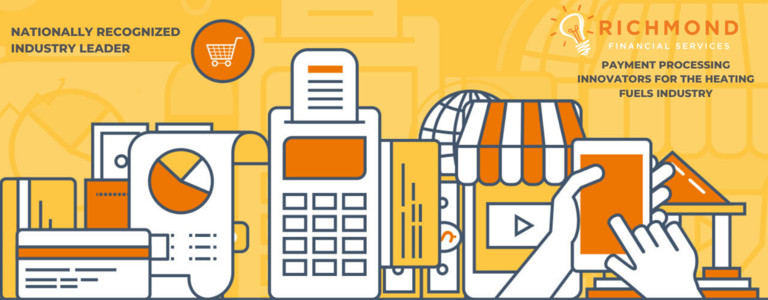Saving money on payment processing is a huge priority for small and medium-sized business owners in the home heating and fuels industry. You want to be able to rest easy knowing that you’re getting the best rate and each purchase is clearing target interchange with ease.
Keeping everything organized isn’t easy. In fact, it’s often a constant struggle, and you may need expert help. At my company, Richmond Financial Services, I help business owners like you create the best payment processing strategy possible to cut costs and increase your bottom line.
Here are a few tips:
 1. Invest in fintech
1. Invest in fintech
Financial technology, or fintech, can help automate several different business processes into one, streamlined solution. With the right system in place, you never again have to worry about accounting or other financial aspects of your business.
Fintech also plays a role in modernizing your business processes. For example, many businesses now offer online and mobile payments to cater to the modern-day consumer. This practice is so prominent, it’s predicted that most B2B transactions will be completely digital by 2025.
2. Avoid chargebacks
To be successful in your space, you need to make a plan to eliminate chargebacks. If you’re not familiar, a chargeback happens when the money for a transaction is redeposited into the consumer’s account upon their request. Unfortunately, the retailer is still responsible to make up the loss on the dispute.
To avoid chargebacks, make sure to keep your customer service policy up to date. When in doubt, always try to resolve matters with the customer first so they don’t feel the need to get the credit card company involved. Your customers will appreciate it!
3. Make a strategy for all four credit card companies
You may have a strong payment processing strategy, but it’s unlikely you understand how all four major credit card companies work. Visa, Mastercard, American Express, and Discover all have different policies and fees, making it difficult to offer a “one size fits all” model.
Visa and Mastercard are similar because they both earn the majority of revenue from processing fees. However, their calculations are completely different. For example, Mastercard calculates its fees as a percentage of global dollar volume. The average payment processing fees vary between 1.43% – 3.5%.
I can work with you to get the lowest rate possible for all four companies.
I hope you find this blog helpful. Learn more about Richmond Financial Services by visiting my website. Or, simply click here to request a free consultation.








